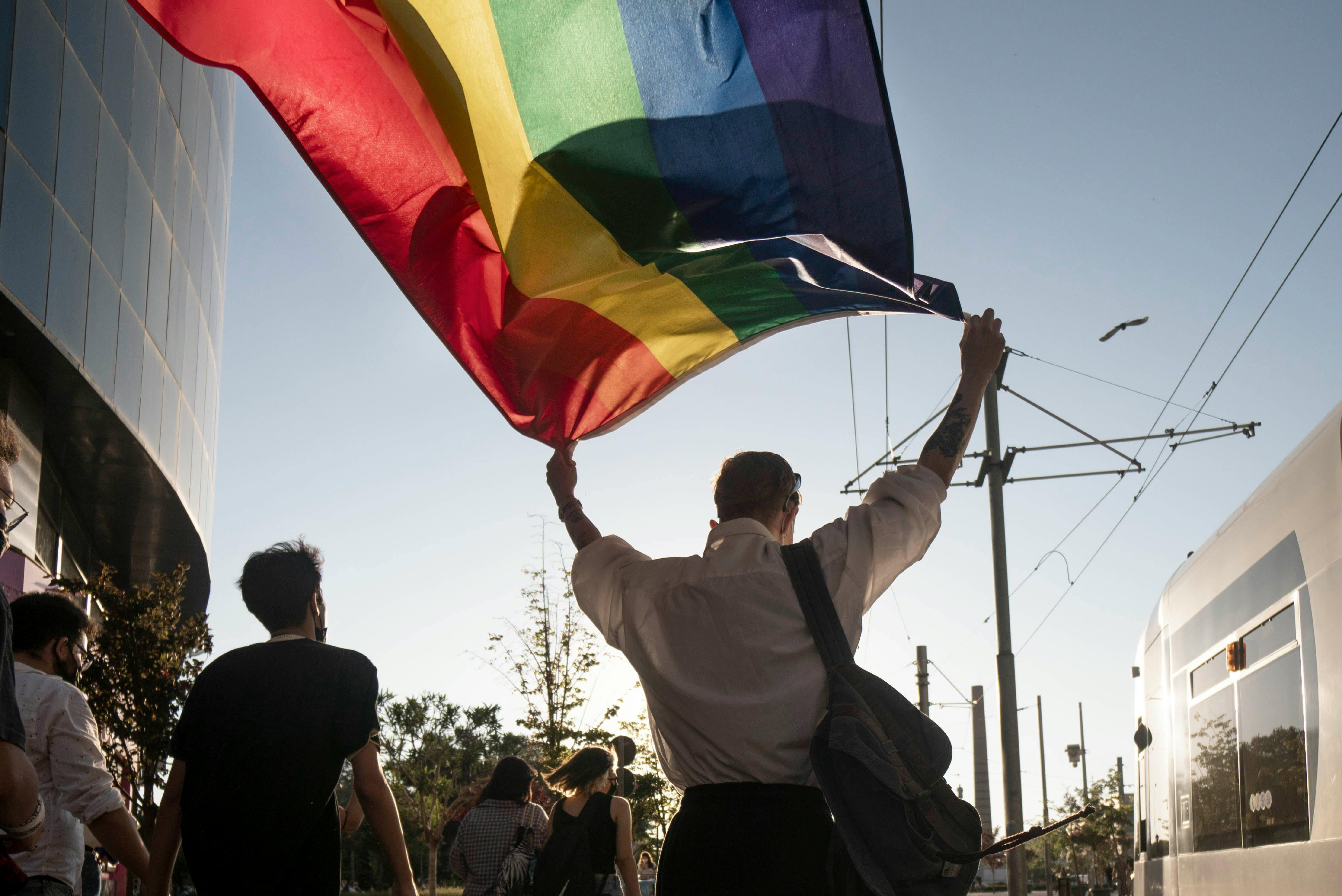Navigating relationships can be challenging for anyone, but for transgender individuals and couples, finding a safe and supportive environment to address their unique experiences and challenges is crucial. In Denver, trans-inclusive marriage counseling services are available to provide the understanding, validation, and guidance needed to foster healthy, thriving relationships. Discover LGBTQIA+ Affirming Therapy Options Covered by Medicaid.
Why Inclusive Counseling Matters
Transgender individuals often face a myriad of obstacles, both internally and externally, that can impact their mental health and relationships. Not only is the coming-out process challenging, but also discrimination, stigma, and a lack of understanding from society can contribute to feelings of confusion, anxiety, and depression. When seeking marriage counseling, it’s essential to find a therapist who not only understands the complexities of relationships but also has the knowledge and sensitivity to work with transgender clients.
Inclusive marriage counseling acknowledges and validates the experiences of transgender individuals and couples. It creates a non-judgmental space where clients can openly discuss their gender identity, the impact of transitioning on their relationship, and any other related concerns. By working with a therapist who affirms their identity, transgender couples can feel more comfortable and empowered to work through their challenges.
Unique Challenges in Trans Relationships
Trans couples often encounter specific and complex challenges:
Navigating Gender Identity
- Transitioning Together: When one partner transitions, it can significantly alter the relationship dynamics, necessitating adaptation and mutual support.
- Internalized Transphobia: Many trans individuals struggle with internalized negative beliefs, which can harm self-esteem and relationship satisfaction.
Social and Family Dynamics
- Coming Out Journey: The process of coming out, whether individually or as a couple, can be filled with anxiety and stress, impacting how the relationship functions.
- Family Acceptance Issues: A lack of acceptance from family members can lead to emotional distress and conflicts within the relationship.
Health and Well-being Considerations
- Access to Competent Healthcare: Finding healthcare providers who are knowledgeable about trans-specific needs can be challenging and stressful.
- Mental Health Concerns: Addressing mental health issues such as depression and anxiety is essential for maintaining a healthy and fulfilling relationship.
Inclusive marriage counseling addresses these challenges by providing a supportive space to process emotions, develop coping strategies, and strengthen communication skills. Therapists can help couples navigate the complexities of transition, build resilience, and foster a deeper understanding and help uncover the path that feels authentic and safe for the couple.

Overcoming Challenges Through Counseling
Transgender couples face unique challenges that can strain their relationships, such as navigating the transition process, dealing with societal stigma, and coping with mental health concerns. However, with the help of specialized marriage counseling, these couples can overcome obstacles and build stronger, more resilient partnerships.
Trans-inclusive marriage counseling provides a safe, supportive space for couples to discuss their experiences, fears, and hopes related to the transition process. Therapists can help couples develop effective communication strategies, foster empathy, and create a shared vision for their future. Counseling can also help couples learn strategies for managing stress, setting boundaries, and building a strong support system to cope with external pressures.
Furthermore, marriage counseling can address mental health challenges that may impact the individual and the relationship. By processing emotions, developing coping strategies, and strengthening resilience, couples can work towards overall well-being and a healthier partnership.
Ultimately, trans-inclusive marriage counseling helps couples build the skills needed to overcome challenges and create a loving, supportive relationship. By working with a knowledgeable, affirming therapist, transgender couples in Denver can navigate the complexities of their relationship and build a strong foundation for a thriving partnership.
Finding Trans-Friendly Marriage Counseling in Denver
When searching for trans-inclusive marriage counseling in Denver, it’s important to consider the therapist’s experience, approach, and credentials. Look for counselors who have specific training or expertise in working with LGBTQIA+ individuals and couples. Many therapists will state their specialties or areas of focus on their websites or online profiles. Learn more about finding an lgbtqia+ friendly therapist in denver!
Organizations such the Colorado Center for Clinical Excellence and the Colorado Counseling Association maintain directories of qualified mental health professionals, including those who specialize in LGBTQ+ issues. Additionally, referrals from local LGBTQIA+ community centers or support groups can be a valuable resource in finding a therapist who understands and affirms transgender identities.
At iAmClinic, we specialize in providing supportive counseling services for Transgender individuals and couples, along with their loved ones. Our mission is simple: to empower the LGBTQIA+ community and their families to foster internal solidarity, embrace authentic identities, and cultivate lasting relational well-being. With us, there’s no judgment—just unwavering support and hope. Take the first step towards a brighter, more affirming future. Contact iAmClinic today to embark on your journey towards healing and acceptance.

Counseling Approaches and Techniques
Various counseling centers and therapists in Denver employ a range of approaches tailored to the unique needs of transgender couples:
Affirmative Therapy
- Supportive Environment: Creating a space where clients feel safe to explore their gender identity and relationship dynamics.
- Identity Affirmation: Encouraging self-acceptance and pride in one’s identity.
Cognitive Behavioral Therapy (CBT)
- Addressing Negative Thought Patterns: Helping clients identify and change harmful thought patterns related to gender identity and relationship issues.
- Building Coping Skills: Developing strategies to manage stress, anxiety, and depression.
Emotionally Focused Therapy (EFT)
- Strengthening Emotional Bonds: Fostering deeper emotional connections between partners.
- Improving Communication: Enhancing communication skills to resolve conflicts and build trust.
Family Systems Therapy
- Navigating Family Dynamics: Assisting couples in managing relationships with family members.
- Promoting Acceptance: Facilitating discussions to foster understanding and acceptance within families.
Practical Advice and Strategies for Overcoming Challenges
Navigating Transition
- Open Communication: Encourage ongoing, honest conversations about feelings and expectations related to the transition.
- Mutual Support: Ensure both partners feel supported throughout the process.
- One Step At A Time: We keep all options open, testing the path, one step at a time, to ensure your arrival at safety, mutual respect and authenticity.
Communication Issues
- Active Listening: Practice active listening to understand each other’s perspectives and needs.
- Conflict Resolution: Use conflict resolution techniques to address disagreements constructively.
Family Dynamics
- Setting Boundaries: Establish clear boundaries with family members to protect the relationship.
- Seeking Mediation: Consider family mediation to facilitate difficult conversations and promote acceptance.
- Coming Out to Children: Many parents find it difficult to come out to their children. We help you identify the safe route with care, love, and wisdom.
Frequently Asked Questions
Discover the Support You Need at iAmClinic
If you’re looking for relationship counseling in Denver, consider iAmClinic. With specialized expertise in LGBTQIA+ challenges, our counselors are dedicated to providing a safe, understanding, and affirming environment to help you and your partner navigate the complexities of your relationship. Whether you’re facing internal challenges, societal pressures, or family dynamics, iAmClinic is here to support your journey toward a stronger bond and a healthier relationship.
Reach out to us today and discover how we can assist you in achieving your relationship goals. Your path to a more connected and fulfilling partnership starts here.


